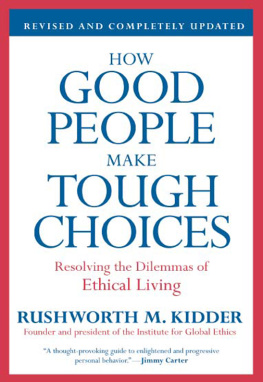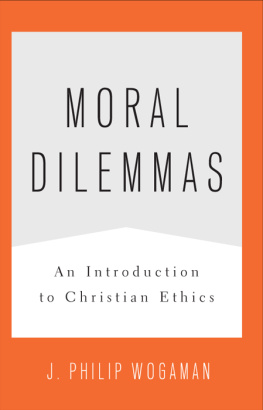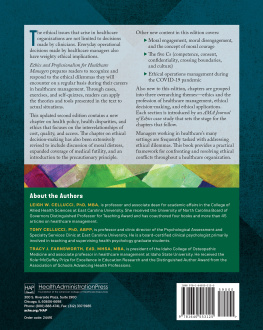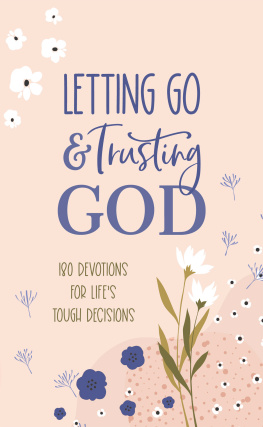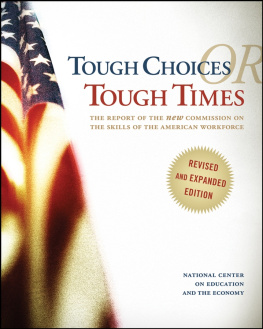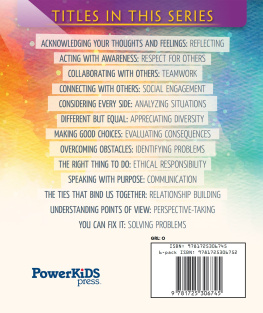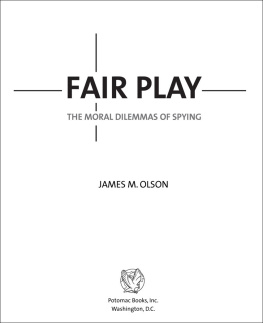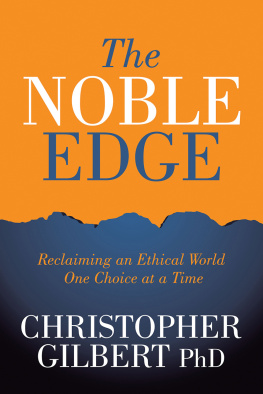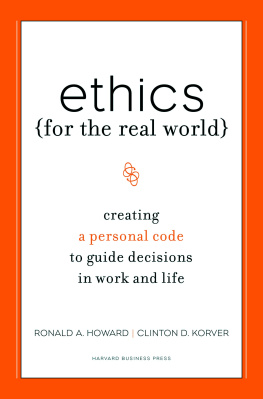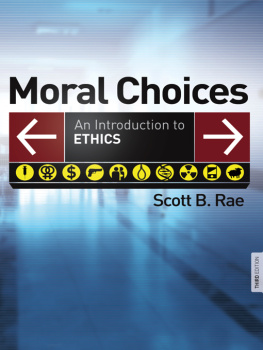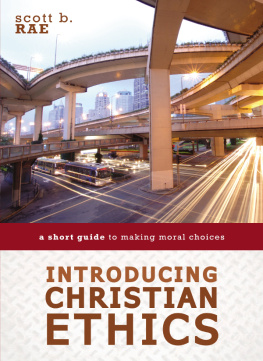
To my parents,
Ruth and George Kidder,
who taught us ethics by their example
Contents
Contents
Guide
In the fourteen years since this book was first published, the ethics thoughtscape has changed dramatically. In 1995, the idea of teaching values was sometimes dismissed with the provocative and captious retort, But whose ethics will you teach? Now it is widely accepted that a core of shared values exists. At that time, ethics was mentioned only here and there in the news; now the word appears in the media nearly every day. Then, ethics institutions were uncommon; now, according to the IRS, there are 135 nonprofit organizations with the word ethics in their titles. Then, the Ethics Officer Association was only four years old, having been founded with some thirty members; now its successor organization boasts more than 1,300. Then, ethics was regarded in many business schools as a soft subject of secondary significance; now, with the cacophony of Enron, Bernie Madoff, and a full-blown ethics recession ringing in our ears, ethics is increasingly seen as essential to free enterprise and democracy.
For all this evolution, however, two central challenges remain. The first is to lift ethics from the realm of moralizing. A friend of mine put it well in reflecting on the ethics course she took for her graduate degree in library science in the 1970s. I was looking for tools, she said, and all I got was platitudes. Since 1995, theres been real progress on that front. Ethics today is seen less as a collection of aphorisms than as part of a skill-set for practicing professionals. As our confidence in ethics grows, it seems, we more readily distinguish it from the merely moralistic. Result: The word moral is creeping gingerly back into the public lexicon. Not so many years ago, that word stank of hectoring self-righteousness or grim disapproval. It now appears (properly, in my view) to be used more often as a synonym for ethics. And where once it was reserved for sexual matters (a morals charge, in the dark euphemism of the newspapers of my boyhood), it has now become part of the media vocabulary in phrases such as moral courage, moral hazard, and moral aggression.
The second challenge is to elevate ethics beyond right-versus-wrong assertions and into a right-versus-right decision-making model. Today, that model remains the focus of this bookand for good reason. Much of what passes today for ethics is rule-making dressed up as philosophy. Compliance with these rules is an undeniably important aspect of our culture: Without compliance, youll never arrive at a genuinely ethical mind-set. But neither will you get there through compliance alone. The toughest choices lie not in deciding whether to comply with the law but in choosing what to do when both sides are right. As the world shrinks and complexity grows, those choices provoke the most intellectually engaging and socially significant conversations of our times.
This edition preserves most of the arguments, dilemmas, and language of the earlier edition. The updating has principally focused on the survey data cited as evidence for those arguments, which was drawn from the late 1980s and early 1990s. Much of that dataaround issues of student cheating, say, or corporate ethics programshas been refined and sharpened by the ongoing work of survey researchers in the field, to whose work I am constantly indebted. Where old data was superseded, Ive deleted it; where it still makes sense, Ive retained it as a foil for the later data.
The other significant addition is a new epilogue. The original epilogue sought to project the right-versus-right framework beyond the range of personal ethics and into public and global issues. Since the issues I discussed in 1995 remain with us today, Ive retained that epilogue and added an additional one. The new piece focuses on what I call the ethics recession, and the way in which the economic crisis of 2008/09 quickly grew from a public discussion about money and markets into a conversation about corruption and irresponsibility. When that crisis is seen through the lens of ethics, it becomes clear that it arose because of a breakdown in public and private integrity. Not surprisingly, then, we wont put it firmly behind us until we address it as an ethical rather than merely an economic phenomenon. That will require us to shift our focus from personal to organizational ethicsbuilding not simply better individual thinkers but better cultures of integrity. This argument draws on a short book of collected columns I published in the spring of 2009. Titled The Ethics Recession, it has a deliberately evanescent subtitle: Reflections on the Moral Underpinnings of the Current Economic Crisis. That book will go out of date as the crisis fades, but the arguments about ethics and economics will not. Hence my effort to capture them here.
For his work in helping me prepare this edition, I owe fireworks and bouquets to Alexander C. Schroeder, who spent several summers as an intern at the Institute for Global Ethics toiling in the marshes of survey data. In the following pages, many of the numbers followed by percent signs and dated later than the early 1990s are of his discovery, and some of the phrasing is his. His cheerful diligence and sharp analytical skills were invaluable in this work. I owe an entire garden of praise to my longtime assistant Polly Jones, who wrestled recalcitrant software to the ground and moved this project forward with unfailing grace, uncomplaining energy, and a sharp literary eye. Graham Phaup, our executive director, was an inestimable help in urging me onward, making room for this work in our budgets and calendars, and helping trim away the organizational underbrush so I could see the path forward. Our colleagues at the Institute for Global Ethics in the United States and in LondonSheila Bloom, Marty Taylor, Paula Mirk, Pat Smith, Scott Ventrella, Amber Kruk, Julie Swindler, Lynda Leach, and Andrea Curtiscontributed suggestions and comments along the way. Finally and profusely, my thanks go to my wife, Elizabeth, who provides the things most cherished by writers everywhere: a deep and abiding interest in the topic, a respect for words and their crafting, and a mental space for me to do this work.
RUSHWORTH M. KIDDER
Lincolnville, Maine
The seeds of this book were sown when, one warm summer afternoon at her home in Cos Cob, Connecticut, in 1986, I had a quiet, long, and thoughtful conversation with Barbara Tuchman.
A historian of what she called the small facts, not the big Explanation, she had twice won the Pulitzer Prizeand earned high praise for such books as A Distant Mirror, which used the fourteenth century and its Black Plague as a mirror for the twentieth centurys confusions and violence. As a columnist and staff writer for the Christian Science Monitor, I was interviewing her for a series of articles based on the ideas of twenty-two leading thinkers around the world. Ultimately published as An Agenda for the 21st Century (MIT Press, 1987), this series sought to discover the major, first-intensity, high-leverage issues that humanity would have to address in order to negotiate the coming century successfully.
As we talked, I asked her how, if she were a twenty-first-century historian looking backward, she would characterize our century.
I would call it an Age of Disruption, she said. She warned of the nuclear threat. She called attention to environmental problems. But her central concern, she said, lay in the real disruption in public morality.
Next page
